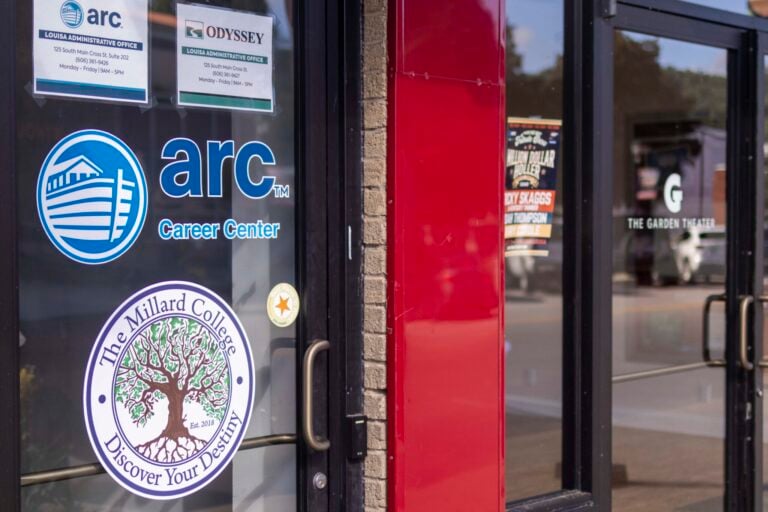The 2021 Kentucky General Assembly wrapped up a whirlwind legislative session with a variety of wins and losses for civil liberties. This year, the American Civil Liberties Union of Kentucky tracked over 270 bills, testified in committees, and worked with lawmakers over countless texts, calls, emails, and zooms. We also connected Kentuckians with direct experiences related to issues like incarceration, policing, and pregnancy with lawmakers so they could share stories about how policy affects their lives.
Reproductive Freedom
Decisions about pregnancy can be complicated and are deeply personal. We believe all Kentuckians deserve the legal rights and material resources to make the best decisions for themselves.
As expected, lawmakers continued their effort to entirely block access to abortion care. The most extreme restriction was House Bill 91, a proposal to amend the Kentucky Constitution to completely ban abortion care if Roe v. Wade is ever weakened or overturned – even in cases of rape, incest, or life-threatening conditions. It would also enshrine an existing law prohibiting private insurance companies from covering abortion care. HB 91 will appear on ballots in 2022 and be decided by voters.

House Bill 2 will allow the attorney general to interfere with oversight of abortion care providers instead of leaving it to career health experts in the Cabinet for Health and Family Services. House Bill 2 is clearly not about improving health as it singles out abortion care and no other types of healthcare.
Despite these setbacks, we advanced legislation to improve health outcomes. Senate Bill 84, dubbed Dignity Bill 2, will build on a 2018 law to ensure pregnant incarcerated people have the resources for safe, healthy pregnancies. Together, these laws will prohibit shackling and solitary confinement during pregnancy and post-partum, ensure 6 weeks of post-partum care, and expand access to substance use disorder treatment and social workers who will help develop reunification plans.
Last, House Bill 212 will require the annual child and maternal fatality report to include demographic analyses by race, income, and geography so advocates and policymakers can better understand the issues facing pregnant Kentuckians.
Justice Reform
Lawmakers passed significant reforms addressing the root causes of incarceration and reducing violent interactions between law enforcement and Kentuckians.
First, Senate Bill 4, a version of Breonna’s Law, will severely restrict “no-knock” warrants. Passed in response to the murder of Breonna Taylor, SB 4 is one step in reimagining the role of police in community safety. 63% of these deadly raids are served in search of drugs; limiting their use will prevent some future harm from the failed war on drugs. SB 4 is positive but does not deliver justice to Breonna Taylor who was murdered when officers stormed her home searching for drugs that did not exist and a person they already had in custody.
Second, several new laws address the causes of incarceration. House Bill 126 will increase the felony theft threshold, or the value of stolen property that determines felony or misdemeanor charges. This had not been updated since 2009, lagging behind inflation and falling far behind surrounding states. It ballooned incarceration rates and forced people to carry unfair sentences that made it extremely difficult to pay restitution and gain employment.
Senate Bill 51 and House Bills 7, 50, and 497 recognize incarceration cannot treat substance use disorder. SB 51 and HB 50 make it easier for people to use insurance for treatment by reducing administrative hurdles and removing arbitrary coverage limitations. HB 7 will establish a council to help counties support people seeking treatment. A crucial provision will include people with experiences related to recovery. HB 497 ensures people have the tools to get back on their feet after incarceration by helping build resumes, earn employability certificates, and obtain valid IDs.
Last, Senate Bill 32 will help Kentucky kids by ending the mandatory transfer of children to adult court for some charges. Children in adult court receive little support and often face severe charges. Additionally, 53% of children charged as adults in Kentucky are Black, despite comprising only 8% of the state’s population. Kids need love and support, not adult courts and prisons.
LGBTQ Equality
Kentucky lawmakers followed the national trend of attacking transgender children by filing a record number of discriminatory bills. None of them advanced, but we expect them to return next year and gain traction.
Lawmakers failed to pass a statewide anti-discrimination Fairness Law or protect children from the torture of “conversion therapy,” a debunked practice that attempts to change one’s sexuality or gender identity. We will continue supporting partners to promote these policies at the local level until all Kentuckians can safely live as themselves.
Missed Opportunity
In 2019, Governor Beshear restored voting rights to 175,000 Kentuckians with a past felony conviction. Unfortunately, a future governor could undo this with the stroke of a pen. A bipartisan group of lawmakers supports codifying this policy into law, but it did not advance this year. We will continue pushing for legislation to ensure all Kentuckians can exercise this fundamental right.
Learn more about these bills and others at ACLU-KY.org.
Kate Miller is advocacy director for the American Civil Liberties Union of Kentucky.

















